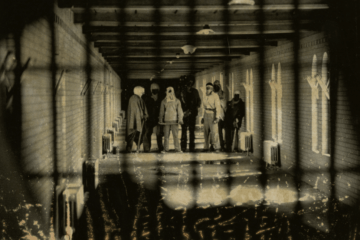Lizzy Lerud at Poetry Magazine:
 On a May evening in 1972—eight months after the uprising—Tisdale passed through Attica’s security gates and held his first workshop. He began by asking his students, “What is poetry?” He recorded their answers in his journal: “Personal, deals with emotions, historical, compact (concise), eternal, revolutionary, beauty, rhyme, rhythm, a verbal X-ray of the soul.” Knowing he was under nearly as much scrutiny as the imprisoned men, Tisdale approached the “revolutionary” aspects of poetry with caution. Attica’s administrators feared another revolt. Officers were always present for the workshops; Tisdale’s journal makes special note of the occasions when a Black officer, recruited after the uprising, attended. Regardless of the surveillance, the workshop began to gel after the first few weeks as participants became more comfortable with Tisdale. He noticed quickly that many contributors possessed great skill as poets. They told him that nothing had changed at Attica since the revolt; prison conditions remained abhorrent. They shared an urgency to write about the violence they had witnessed and America’s carceral system in general, and they did not hold back.
On a May evening in 1972—eight months after the uprising—Tisdale passed through Attica’s security gates and held his first workshop. He began by asking his students, “What is poetry?” He recorded their answers in his journal: “Personal, deals with emotions, historical, compact (concise), eternal, revolutionary, beauty, rhyme, rhythm, a verbal X-ray of the soul.” Knowing he was under nearly as much scrutiny as the imprisoned men, Tisdale approached the “revolutionary” aspects of poetry with caution. Attica’s administrators feared another revolt. Officers were always present for the workshops; Tisdale’s journal makes special note of the occasions when a Black officer, recruited after the uprising, attended. Regardless of the surveillance, the workshop began to gel after the first few weeks as participants became more comfortable with Tisdale. He noticed quickly that many contributors possessed great skill as poets. They told him that nothing had changed at Attica since the revolt; prison conditions remained abhorrent. They shared an urgency to write about the violence they had witnessed and America’s carceral system in general, and they did not hold back.
more here.
